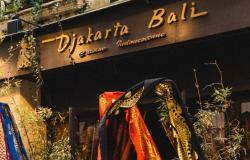The Great Mosque of Paris, under the direction of Chems-eddine Hafiz, is at the heart of a controversy which is inflaming Franco-Algerian relations. Accused of serving as an antenna for the Algiers regime, this religious institution is singled out for its role in recruiting influencers advocating hatred and threats against Algerian opponents exiled in France.
Chems-eddine Hafiz, rector of the Grand Mosque of Paris since 2020, is criticized for his close ties with the Algerian authorities. His active role in media and digital campaigns orchestrated from Algiers, aimed at intimidating Algerian dissidents and sowing terror in France, was denounced by several observers, including the blogger Chawki Benzehra and the journalist Mohamed Sifaoui. The latter point to a systematic organization of calls for violence, relayed by thousands of influencers financed indirectly by the Mosque.
According to several analysts, the Grand Mosque of Paris acts as an extension of Algeria’s diplomatic and political ambitions. Regular visits by Hafiz to Algeria to meet leading figures, including President Abdelmadjid Tebboune, reinforce this perception. These interactions, according to sources such as exiled journalist Abdou Semmar, go beyond simple religious considerations and are part of a political agenda aimed at influencing bilateral relations.
In addition to its controversial activities, the financial management of the Grand Mosque of Paris raises questions. Despite annual subsidies of 1.2 to 2 million euros granted by Algeria, no transparency is observed in its accounts. Even more troubling, the Mosque has held exclusive halal certification for red meats imported into Algeria since 2023, a strategic position that generates substantial revenue.
The French authorities, long silent in the face of these actions, have recently intensified their efforts to counter this influence. Several arrests have taken place among influencers involved in hate campaigns. Furthermore, President Emmanuel Macron sent a firm message to the Algerian regime, condemning the imprisonment of the writer Boualem Sansal and describing Algeria’s attitude towards its opponents as “dishonor”.
The current situation calls into question the role of the Grand Mosque of Paris, supposed to represent the entire Muslim community in France. By acting as a conduit for Algerian ambitions, it compromises not only its credibility, but also the cohesion of the Muslim community it claims to serve.





